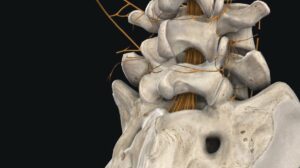NEW YORK (Reuters Health) – Adults with a history of low birth weight (LBW) are more prone to respiratory illnesses requiring hospitalization than are adults without such a history, findings from a population-based, case-control study indicate.
“Survivors of VLBW with and without a history of bronchopulmonary dysplasia have been found to have abnormal pulmonary function testing as infants, children, and adolescents,” the team writes in the July 15th issue of the American Journal of Respiratory and Critical Care Medicine. “Less is known about the effects of LBW on adult respiratory disease.”
To investigate this issue, lead author Dr. Eric C. Walter and associates at the University of Washington, Seattle, accessed Washington State databases to identify 4674 cases hospitalized for a respiratory illness between the ages of 18 and 27 years, and 18,445 age-matched control subjects.
After adjusting for sociodemographics, the odds of hospitalization were significantly elevated, compared with those born with normal birth weight, for those with moderately LBW (birth weight 1,500-2,499 g; adjusted OR, 1.26; p = 0.001) and for those with very LBW (birth weight < 1,500, adjusted OR 1.68; p = 0.006). The trend of an increased probability of hospitalization as birth weight declined was statistically significant (p < 0.0005).
A significantly increased risk of hospitalization was present across three subgroups of lung disease. For moderate LBW, the adjusted odds ratios were 1.26 for asthma, 1.47 for respiratory infection, and 1.48 for respiratory failure. Corresponding ORs for very LBW were 1.82, 1.80, and 2.40.
When the population attributable risk of 1.8% is extrapolated to the 12 million US hospitalizations for respiratory illnesses per year for ages 18 to 44, Dr. Walter’s team estimates that LBW may account for over 21,000 adult hospitalizations per year, with hospital charges exceeding $225 million annually. Moreover, they expect these estimates to rise in view of the improving survival of LBW infants.
“If confirmed,” the researchers conclude, “these findings suggest that internists, and not just pediatricians, need to be aware of their patient’s birth history.”
Reference:
Am J Respir Crit Care Med 2009;180:176-180.




